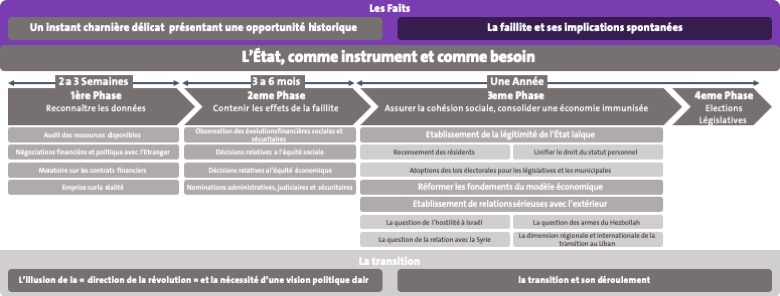Bankruptcy and resulting consequences
We have long warned from bankrupting the country. Today, bankruptcy has become an actuality. But what is bankruptcy? It is not the end of the world but a crisis and also a, historical juncture that may induce change in societies’ course depending on how it is handled.
How is bankruptcy manifested? Quite simply, it is manifested through a sudden deterioration in the value of people’s incomes and savings, in what these incomes and savings can buy of goods and services, irrespective of fluctuations in exchange rates. Incomes fall very rapidly as a result of bankruptcy, either due to the closure of enterprises or the reduction of work hours to cut salaries; including those foreign workers who will find no dollars left to be earned and sent back home. Bankruptcy will also reach the savings deposited in banks: depositors will no longer be able to withdraw or obtain such savings. Equally affected will be basic goods that importers will fail to buy from overseas suppliers while consumers’ income and deposits sit in the banks. Lack of goods in the market started already, most critical are such basic medical equipment that hospitals declared they only have two months of stock left in their warehouses; such shortages threaten to increase the number of deaths by 2,000 per year, according to the same hospitals.
Such are the consequences of bankruptcy. We thus arrive at the second question: what will happen if the failed authority remains clinging to power? Practically, those who can emigrate will and only those who cannot will remain mostly with need of social benefits, care and protection. Will remain as well owners of capitals and speculators, awaiting and eager to profit from bankruptcy where people sell their property at the lowest price to secure such basic necessities for survival. The state will equally sell its properties and productive institutions to meets its expenses; let us recall the so-called ‘reform paper’ that enunciated the sale of the airport, seaports, cellular networks, Middle East Airlines, and others.
This is precisely what is being talked about every day: preparing the country where we all have dear memories, sweet or bitter, for a fire sale. And this is what we feared four years ago when we launched our political movement, ‘Citizens in a State’ (Mouwatinoun wa Mouwatinat fi Dawla).
In spite of it happening, is bankruptcy an inevitable fate? We believe it’s not: the alternative exists and the alternative is the State. Today, our society, our citizens, are in need of a State, not for an ideological or doctrinal reason, they are in need for a State for its function as an instrument that secures a minimum of social cohesion.
Click on the diagramme to return to the table of content

